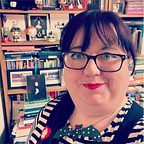Up Close With: Stephanie Dandan
Meet the wonderful writers and patrons behind LWS.
Writing, to this week’s featured patron, is an “absolute necessity akin to breathing, drinking, eating.” A multi-talented, multi-skilled, multidisciplinary writer and photographer, Stephanie Dandan got her start in travel blogging and has also published a poetry collection about trauma, mental health, spirituality and healing. Recently, though, she’s turned her artist’s hands to auto fiction, exploring her life as a traveller and immigrant. She is a thoughtful, contemplative, poetic soul and we are always excited to see her, whether she’s starting or ending her day with her creative work.
Stephanie Dandan, 33
- Based in Los Angeles, California, USA
- Poet, non-fiction writer, copywriter and photographer with multidisciplinary skills
What do you write, in general?
I write poetry and non-fiction. My background is in travel writing; I started traveling in 2012 and grew an audience when I ran a travel blog in a photo diary/journal format. I’m also a copywriter and photographer. I use my multidisciplinary skills to work with brands focused on design, travel, sustainability, and social impact. I also self-published a poetry book called Being, about trauma, mental health, spirituality, and healing.
Ultimately, my passion is in poetry, non-fiction, and fiction — although writing fiction is more of a recent undertaking.
What are you working on right now?
I’m currently finishing an auto-fiction novel. It’s about a young Filipina-American immigrant who survives her suicide and gives herself a year to live. She backpacks around Southeast Asia by herself, exploring her motherland, The Philippines, as she seeks for new ways to live and breathe, while confronting her dark past through writing letters to an anonymous receiver. At least that’s the short gist of it.
I extracted most of the scenes from solo backpacking trips I’ve done in Asia within the last several years. It’s auto-fiction because most of it is based on my life as a traveler and immigrant, although the suicidal storyline, some dialogue and characters are fictional.
I can see the finish line, but I’m still far from it, though closer than I have ever been. I’m somewhere around 70 to 80 percent finished with my manuscript.
Where and when do you write?
Naturally, I’m a night writer. My creativity thrives when everyone is sleeping and the abyss is alive. However, I also find writing first thing in the morning as a great long-term practice for my literary muscles, which is why I joined LWS and the daily Writer’s Hour. I like that writing is my first intention in the morning, and that I choose to end my days with it.
How do you write?
When I’m in a flow state, it’s easier for me to type on my laptop or the notes app on my phone because I type fast enough to catch up with my thoughts. But if I’m in a reflective state, I prefer writing by hand.
Why do you write?
Writing is to me, is an absolute necessity akin to breathing, drinking, eating. When I don’t write, I’m irritable, a fire that needs to be put out, or like my entire soul has to pee and release whatever is building up inside me. I write to live, to understand the intricacies and complexities within it, to question what’s known, and make the unknown known.
What inspires your creativity?
Nature, music, the human condition. Joy, sadness, and colouring the muted grey between them.
What’s your favourite book?
I have many favorite books from different seasons and eras of my life. But if the world was to burn and I can only save one book, it would be my old copy of The Perks of Being a Wallflower. It was one of the first books that made me want to become an author. Since I was in my early teens, I’ve felt seen and understood just by reading it.
What’s the best advice you’ve received about creativity?
I find myself going back to Haruki Murakami for this:
“Writers who are blessed with inborn talent can write easily, no matter what they do — or don’t do. Like water from a natural spring, the sentences just well up, and with little or no effort these writers can complete a work. Unfortunately, I don’t fall into that category. I have to pound away at a rock with a chisel and dig out a deep hole before I can locate the source of my creativity. Every time I begin a new novel, I have to dredge out another hole. But, as I’ve sustained this kind of life over many years, I’ve become quite efficient, both technically and physically, at opening those holes in the rock and locating new water veins. As soon as I notice one source drying up, I move on to another. If people who rely on a natural spring of talent suddenly find they’ve exhausted their source, they’re in trouble.
“In other words, let’s face it: life is basically unfair. But, even in a situation that’s unfair, I think it’s possible to seek out a kind of fairness.”
I’ve come to believe that creativity is like an underground stream — the more you dig the more it flows. And if you learn to love the digging, you’ll find the river.
What’s the one thing you would tell other/aspiring writers?
Write what you know, something true, something yours, most especially if you’re afraid to tell it.
How can we discover more about you and your work?
- Website: stephaniedandan.com
- Instagram: instagram.com/stephanie.dandan
- Unraveling Newsletter: stephaniedandan.substack.com
- Poetry book, “Being”: www.amazon.com/Being-Stephanie-Satori-Dandan/dp/1086732316
